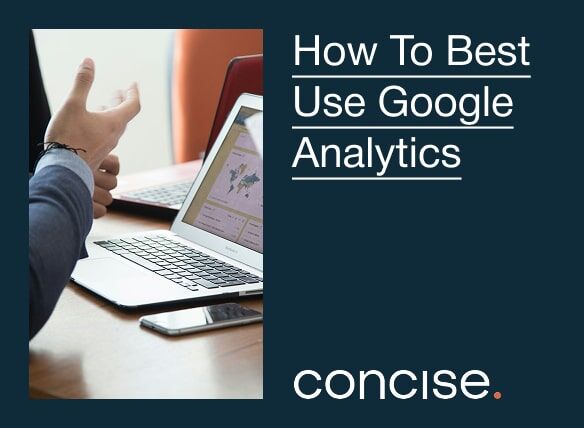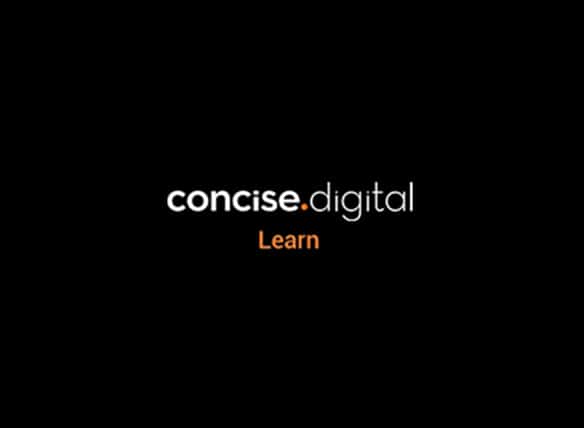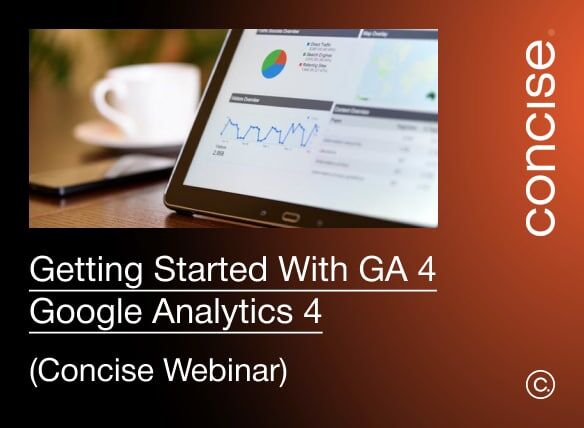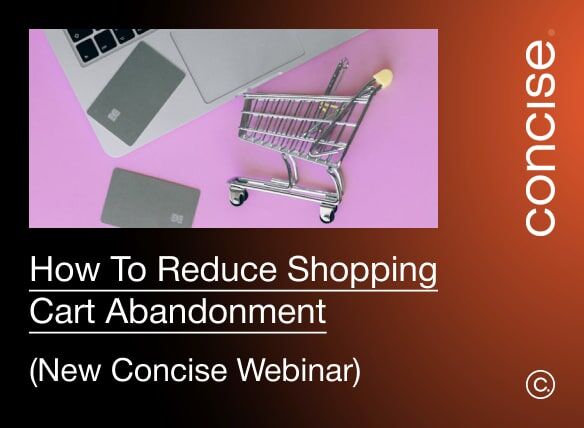Topics

How To Best Use Google Analytics
on
Last updated on

The New Google Analytics
(And do I use new GA4 version or old version or both?)
Google Analytics 4 (GA4) is the new version of Google Analytics.
Google now considers GA4 to be the default version of its Analytics toolset, replacing Universal Analytics (aka GA3), the previous version of its famous data collection and web traffic analysis software.
Update (24 March 2022)
Google has just announced “All standard Universal Analytics properties will stop processing new hits on July 1, 2023.” This means the end of GA3 is 30 June 2023.
We’ve updated this post to make sure the info is still accurate. We’ve also added this new post “The Concise Guide To Google Analytics 4 (GA4)” which has more detailed recommendations, FAQs and more.
9 Key Points (TL;DR Summary)
- GA4 uses AI to create better data and produce better insights for action.
- GA4 is clever, but will take time to learn, and some people find the GA4 user-interface complicated.
- GA3 is not dead, and you can continue to use GA3 for a long time yet. 24/03/24 Update: It will die on 1 July 2023. Historical reports will be available for 6 months after that.
- You cannot simply upgrade from GA3 to GA4. These are totally different analytics systems.
- You can run both GA3 and GA4 simultaneously on the same website. We think this is a very good idea because you can get new AI-based insights from GA4 reports and continue to use GA3 with comparison reports that include historical data. 24/03/24 Update: Yes, but only till July 2023.
- The sooner you add GA4 to your website, the better. It only takes a few hours to set it up. 24/03/24 Update: Yes, add it now or very soon.
- It is always best to set up analytics properly at the start, and this includes setting up analytics to track different types of ‘conversions’ on your website, including which types of visitors convert best.
- Concise Digital can produce concise reports to make this analytics data very useful for you. Q&A chats are often good to discuss the insights and prioritise any action steps and changes to make.
- Please read on for more details, and please contact us if/when you want to talk about any of this.
Google Analytics 4
The new Google Analytics 4 comes with a bunch of key features that make it very different from the old version. GA4 is all about “events.” These events are the main way that data is presented in the new Google Analytics.
One of the biggest differences is the new data modeling feature that uses machine learning bordering on Artificial Intelligence (AI) to fill in gaps in data. With a focus on privacy protection, the previous Universal Analytics is now often blocked by cookie-consent rules or blocked JavaScript.
The machine-learning processing in this new Analytics means that it can fill in gaps where businesses aren’t able to understand their complete customer base when users opt-out of cookie usage and data collection.
Additionally the user-interface for the new default Google Analytics is very different. At first glance,GA4 can appear much more complicated to use than the previous version.
Highlights of the New Google Analytics 4
- Built with machine learning as the main form of data measurement.
- Focused on giving marketers a more complete understanding of the customer journey across devices.
- Designed to be work without cookies or identifying data.
- Features “data streams” instead of the views and segments used by old Universal Analytics properties.
What are the Differences between Universal Analytics and Google Analytics 4?
The biggest difference between traditional Universal Analytics and the new Google Analytics 4 is the user-interface.  There are also many differences in data collection between Universal Analytics and Google Analytics 4 properties – particularly in how data is defined and what data elements are called.
There are also many differences in data collection between Universal Analytics and Google Analytics 4 properties – particularly in how data is defined and what data elements are called.
Key Concepts in GA4
- Events: These are user interactions with a website or app – like page views, button clicks, user actions, etc.
- Parameters: Additional bits of information that give context to each event.
- User Property: Attributes or demographic information about the user.
- User ID: Used for cross-platform user tracking.
Should you add GA4 to your website?
The short answer is “Yes, and the sooner the better”. That said, it’s not urgent that you switch to GA4, but we recommend your website starts using GA4.
(24/03/24 Update: Our advice in August 2021 is still correct, but it is now more important. The clock is now ticking.)
This is because GA4 provides extra features and improved techniques for gathering data. Better info will help you better understand what is happening on your website. For marketers, GA4 will offer many benefits to better know and serve your website visitors and your customers.
Google has not done away with the current Universal Analytics system, and may not kill it off for a very long time, so you can stay with Universal Analytics only if you wish.
(24/03/24 Update: Google will kill it off next year. Hmmm. We thought it would last longer.)
Our Recommended Approach for Adding GA4
The approach Concise Digital recommends is to add an additional Google Tag to your website(s) that will then allow data to be captured and recorded in both the old Universal Analytics AND in Google Analytics 4.
This will result in you continuing to have Google Analytics as you currently know it running as normal, while also capturing new data in the new version of Google Analytics.Existing data from the current Universal Analytics does not transfer over to Google Analytics 4.
We recommend you run both versions simultaneously for at least one year until you gather at least a year’s worth of data on the new Google Analytics 4 whilst also having data from Universal Analytics (aka GA3). After that, you may choose to primarily or solely use GA4.
(24/03/24 Update: Turns out this was very good advice.)
Your old Universal Analytics data will continue to be accessible and you will not lose the ability to check and report on previously gathered data.
(24/03/24 Update: You have until December 2023.)
Google may discontinue GA3 in years to come, but it is worth noting that the earlier version of Google Analytics (known as GA2 or Classic Analytics) was introduced in 2005, discontinued in 2012 and is still being used on some websites around the word with data and reports still being available.
(24/03/24 Update: As above, only until December 2023. Google may change their mind on this timeframe. We’ll see… )
Old ‘historic data’ cannot be migrated to GA4, so if you need data from several years ago, then you will need to view it outside of Google Analytics 4.
This is why we recommend that the sooner you start using GA4, the better.
(24/03/24 Update: Yep, we got that right.)
Regular Reports
With both the old and the new Google Analytics platforms, you can access the information with on-screen reports directly from the system anytime online 24/7. That said, a lot of our clients also like to get our regular reports either monthly or quarterly that outline key trends, highlights, insights and often important actions to take.
The reports are customised to show you what is important for your website and are produced from your Google Analytics data. (Please scroll down to see below examples of what we can include in these customised reports.)
Reports can be prepared either monthly, quarterly or ad-hoc on request, and each report typically takes about 30 minutes to prepare. For ecommerce websites, monthly is often a suitable frequency, whilst for other websites quarterly is often satisfactory. As a baseline, a quarterly report is often a good starting point.
Even though we recommend you set up GA4 now to start collecting website data in GA4 as soon as possible, it is probably not necessary for you to get regular reports from this GA4 data. The preparation of the GA4 reports in addition to the GA3 reports would be an extra cost to you and this may not have significant extra benefits. At some point in the future, we will recommend to you that the source of the report data switches from GA3 to GA4 so the reports we prepare start drawing on the GA4 data.
Q&A Sessions
Many clients also enjoy a quick Q&A session with us to go through questions that arise for them after they have digested their analytics report. These Q&A Sessions can be quick ad-hoc phone calls or may be regularly scheduled meetings either in-person or online.
Q&A sessions help to clarify issues or opportunities with the website as well as marketing, advertising and other business processes that could be improved. Often a short (and concise) focused discussion can quickly help to identify, plan and prioritise next action steps.
Just having Analytics on your website is never the answer. Business improvements do not come from simply having access to lots of historic data. It’s also possible to have too much information. No one wants confusing information or to suffer from the ‘paralysis of analysis’.
As with any other business information that helps you manage your business, your website’s Google Analytics data needs to be interpreted well with concise and meaningful reports with clear and insightful analysis.
Action steps arising from analytics reports do not need to be expensive or time-consuming to be valuable. Good Analytics reports can often help identify small ‘tweaks’ that can quickly bring big improvements.
The challenge is always to use the information wisely to find the key areas areas to focus on to cost-effectively improve and optimise future results.
Analytics Reports Infographic Examples
Here are some examples of the valuable infographics we can prepare to include in custom analytics reports.










